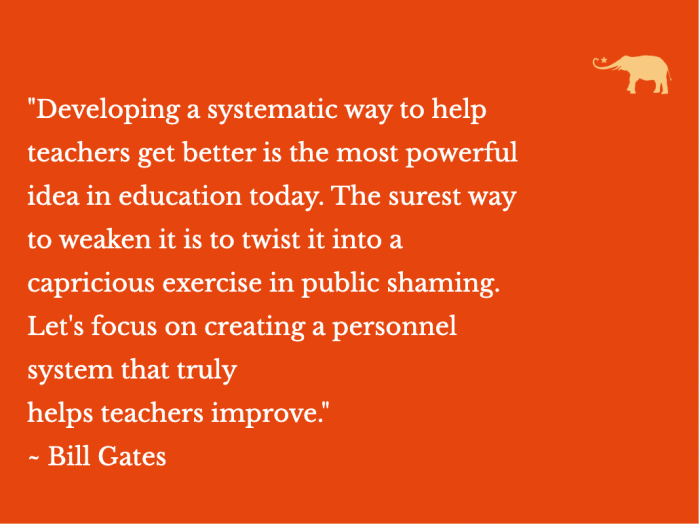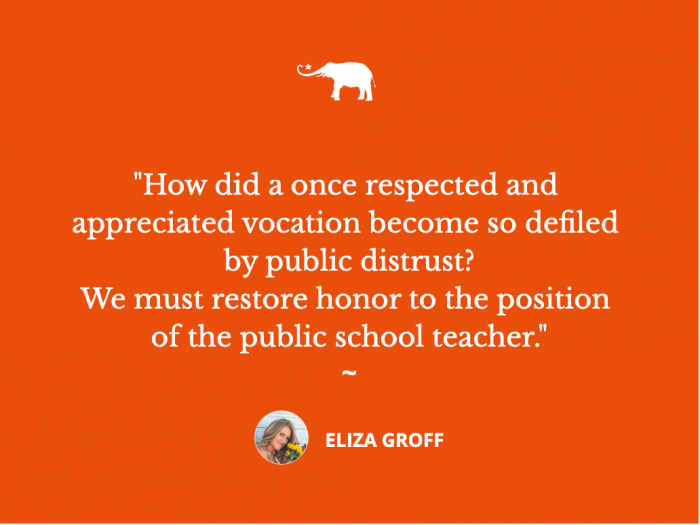~
*Editor’s Note: Elephant Journal articles represent the personal views of the authors, and can not possibly reflect Elephant Journal as a whole. Disagree with an Op-Ed or opinion? Mindfully join the conversation. We’re happy to share your experience here.
~
Having grown up in achievement-based cultures, from the American public school system with standardized testing to the Air Force Academy with high-performance standards, I am familiar with the experience of being racked and stacked against my peers.
Today, this inclination to enumerate and record the performance of students starting in toddlerhood has become not only a national obsession but also a requirement from kindergarten onward.
Brené Brown’s groundbreaking research on shame and vulnerability points out how debilitating this can be for growing minds.
As a mother of a just-turned five-year-old and a two-year-old, I am facing the decision of whether to put my children into public school head-on.
Honestly, I want to put my children in public school.
I want their schooling to be free and convenient. I believe the public school system has its merits as well as its faults.
For example, I want my children to learn how to deal with difficult personalities and solve problems. I want them to experience diversity—to see how other children are raised and what they believe, to expose them to cultural norms and quirkiness, to learn to respect other people, and to learn from teachers who have different teaching styles.
I want them to learn independence from our family and discover that they are capable of navigating themselves to their bus, their school, their classroom, and their lunchroom.
I want them to come home and reveal their concerns and problems.
I want them to have privacy away from our home and to develop themselves as individuals. I want to talk about their friends and meet the friends that they met at school without me.
I want to see their decisions, counsel them when they ask me for help, and watch them navigate the waters of public school as I did. It was not always easy, but public school made me a more independent person.
One more boon for public schools is that many mothers are vying to get back to work. Many mothers want to return to work for their sanity, for regular social interaction away from the home, to earn money, to have a sense of personal accomplishment, and for many other reasons.
In my case, I am an overeducated mother with two advanced degrees—one in psychology and one in public health. My diplomas are collecting dust, while I stay home until my children are school age.
And, now, I am even considering staying home with them to homeschool.
Our family has to calculate the financial loss in the equation of whether to choose public school or home school. The money factor definitely goes in favor of public schools.
Presently, many people reduce the debate between attending public school versus homeschooling simply to developing “social skills.” Homeschooling has a reputation for creating “weirdoes”—people who cannot function in the school system and children who are self-centered, Mommy’s kids.
This reputation is slowly changing as the public school system gets more attention for being too focused on standardized testing, and less tolerant of variation in student performance and activity needs. As learning differences are noticed and diagnosed in the form of attention disorders, autism-related disorders, anxiety, or depression, homeschooling is understood—and dare I say more accepted than it used to be, especially since COVID-19. To be sure, homeschooling parents still face many challenges and social stigmas, but resources are growing and social resistance is lessening.
Tick marks in favor of public school:
>> It is important for parents and children to have time apart for the development of both parties.
>> Children learn to listen to instructions from adults other than their parents, which is a precursor to the workplace. Mother’s often worry they will not have enough patience or skills and resources to teach their children effectively.
>> Teachers are professionally trained, have more experience teaching other children, and may be able to create a structure or regimen more conducive to learning.
Tick marks in favor of homeschooling:
>> Parents are most invested in their children’s learning.
>> Parents are most concerned about their children’s growth, achievement, and creativity.
>> Standardized tests are not effective at measuring overall learning. Other measures of learning are more important than results on standardized tests. Homeschooling allows for a flexible schedule for travel and life experiences.
Yet, what if we could create a new public system for learning?
What if our system for learning was ideal-based, encouraging human dignity and respect, cultivating curiosity, focused on self-growth and self-assessment, emphasizing collaboration, cooperation, and problem-solving?
Feedback would be a measure of effort and engagement, praising grit and intuitiveness. Under this system, creative thinking, empathy, teamwork, and engaging others would be rewarded.
Rotating division of labor would encourage students to develop skills in areas that may not be natural strengths or where they may have limited experience.
Achievement would be a by-product of intrinsically motivated students.
Teachers and parents would be trained to show vulnerability, acknowledging the limitations of each teacher, parent, and student.
Shaming teachers and students for poor performance on rigid metrics would be a thing of the past.
Of course, public school and home school are only two of the options available to families today. There is a range of other types of schools, from Montessori to private schools. The other options vary in price, time commitment, and teaching modes. I have a difficult time imagining paying for academic instruction for a pre-K student when unstructured play has proven so beneficial at that age.
Of course, many people use pre-school as a form of childcare and hope that it will also have the added benefit of eventually making their child more competitive for college.
Our public education system is deeply flawed and limited in its ability to prepare students for the workforce.
We are limiting minds by restricting creativity starting as early as pre-kindergarten.
The current system is teaching ideals that are grossly limited in usefulness for real-world application. The requirement for achievement and the shaming of our teachers and students for missing performance markers is a public tragedy.
Yet, I do not know if I can do any better at home.
There is still a need for public education, but bureaucracy and legislation are in the way of an education overhaul. American public education needs a revolution!
Standardized testing should be severely limited, and it should not be used as a metric for teacher performance or pay. We must support our teachers and our students. We must allow for creativity, play, and individual differences. We must accept variances in the pace of learning and understand that academic metrics are indicators of learning, but they are not the most important aspect of learning.
Lifelong curiosity, the ability for people to apply what they learn in school to life, and developing people of character should be the metrics that we care about most.
How do you assess these things?
Well, we must define our collective intention and train teachers and parents how to teach these ideals. Most of all, we must rely on our teachers to use their own judgment. We must trust and respect those teachers who are servants to our community.
We must be humbled by the knowledge that anyone who becomes a teacher must do it for their love of teaching because they certainly do not do it for the money. To be certain, some teachers are better than others. But even our best teachers are being stunted by the current system of micromanagement and relentless testing. In my opinion, anyone who becomes a teacher today has subjected themselves to an organizational culture of public humiliation, harassment, and a toxic work environment.
How did a once respected and appreciated vocation become so defiled by public distrust?
We must restore honor to the position of the public school teacher.
We must define our vision for public education.
We must entrust our educators with that vision and be grateful that they are working for the greater good of society to develop the minds of our children.
~








Read 0 comments and reply